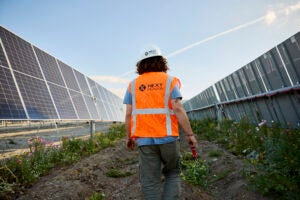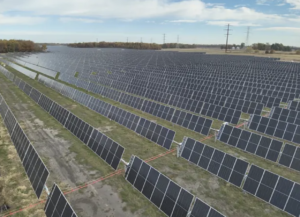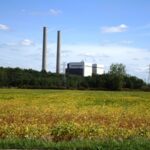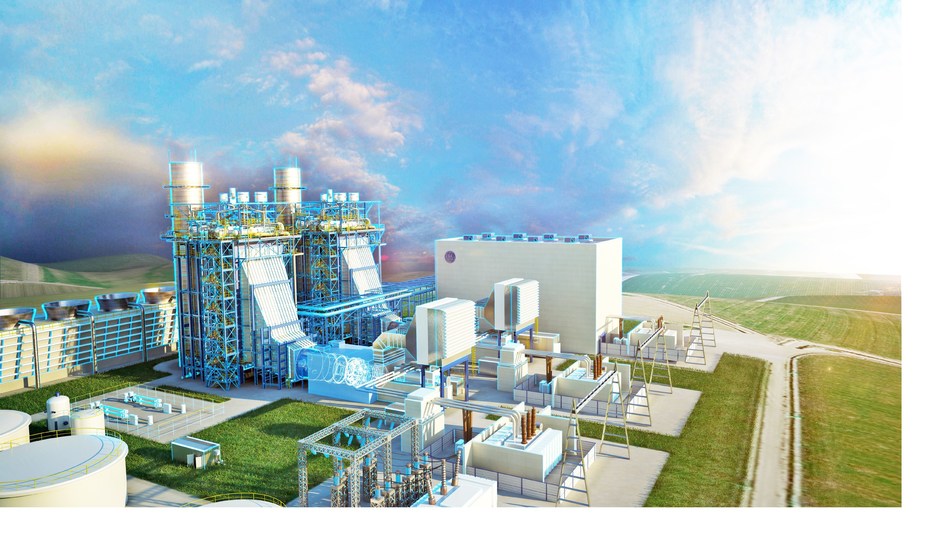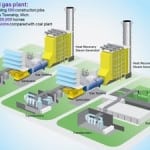DTE Energy has announced a goal to achieve net-zero carbon emissions by 2050, following steps by Duke Energy, American Electric Power, and NRG Energy to do the same over the past two weeks.
The Detroit-based company on Sept. 26 said it would go beyond its existing commitment to reduce carbon emissions 50% by 2030 and 80% by 2040 to achieve net-zero emissions by 2050. The goals would ensure the company’s “medium- and long-term plans align with the scientific consensus around the importance of achieving significant economy-wide carbon emissions reduction by mid-century.”
DTE Energy’s utility operations consist of DTE Electric—which is regulated by the Michigan Public Service Commission, but also participates in the MISO energy market—and DTE Gas, but it has three other segments involved in natural gas pipelines, gathering, and storage; power and industrial projects; and energy marketing and trading operations. The electric segment serves 2.2 million residential, commercial, and industrial customers in southeastern Michigan.
According to the company’s February 2019 10-K filing, as of December 2018, DTE had six coal plants: the 1,034-MW Belle River plant; the 785-MW Greenwood plant; the 3,066-MW Monroe plant; the 272-MW River Rouge plant; the 1,216-MW St. Clair plant; and the 495-MW Trenton Channel plant. In total, coal made of nearly 60% of its 11.6-GW portfolio. The remainder came from about 2 GW of gas- and oil-fired peaking units. It also has 450 MW of wind and 64 MW of solar, a 1-GW pumped storage facility in Mason County, and it runs the 1.1-GW Fermi 2 nuclear power plant in Monroe County.
To attain its carbon goals, DTE plans to “transition away from coal-powered sources and incorporate more renewable energy, energy waste reduction projects, demand response, and natural gas fueled generation,” it said.
DTE has already retired four coal units at the Trenton Channel, River Rouge, and St Clair facilities. It plans to retire its remaining 13 coal-fired generating units, though for now, it has long-term contracts to buy about 24 million tons of low-sulfur western coal and about 850 thousand tons of Appalachian coal for delivery between 2019 to 2022. Seven units will be retired at the Trenton Channel, River Rouge, and St. Clair facilities through 2023, and the remaining units at Belle River and Monroe will be retired by 2040. For now, it doesn’t plan to build any new coal-fired generation. Meanwhile, in a 2018 renewable energy plan filed with the MPSC, it proposed to build 1 GW of new wind and solar plants by 2022.
However, Jerry Norcia, chief executive officer, DTE Energy, in a statement on Thursday said the company will work with policymakers to “advocate for focused research on carbon offsets, high volume storage, and carbon capture technologies.” Carbon neutrality, he noted, will also require further advancements in large-scale storage, and modular nuclear facilities.
“We are fully committed to doing our part to dramatically reduce carbon emissions from DTE Electric,” he said. ”Setting the goal of net zero carbon emissions for our electric company by 2050 is an important next step that builds on our existing commitments. This is the right thing to do for our customers, business and the environment. We are doing as much as we can, as fast as we can, to provide our customers and the state of Michigan with clean energy that is affordable and reliable.”
—Sonal Patel is a POWER senior associate editor (@sonalcpatel, @POWERmagazine)


